The Indivisible or Inadmissable Committee
The Indivisible or Inadmissable Committee
When one calls a strike, who hears the call, who attunes and listens to it? How to listen to the call of a strike? What prevents one from hearing this call or stops one from listening to it?
ReadA Description
On May 1st 2012, different groups associated with the Occupation of Wall Street have called to begin a General Strike throughout the United States. The history of May Day as a part of workers’ struggles against exploitation begins in the US, on May 1,1886 when a federation of workers organized a general strike in industrial cities throughout the country demanding an 8 hour work day. On May 3rd, a striking worker was killed by police in Chicago, one of the main hubs of unrest. On May 4th, a mass meeting was called for by anarchist labor activists to condemn the killing, leading to what is today referred to as the Haymarket Affair. On May 3, 2012, let us hope the police will not kill any striking workers, will not once again revert to ugly violence, as they have done frequently in history, and more recently in Tunis, Athens, London, Cairo, Madrid, Santiago, Manama, Homs, New York and beyond, to intimidate, criminalize, and attempt to destroy this tumultuous and beautiful struggle against capitalism and against the concentration of wealth and power, against the collusion of governments around the world with systems which immiserate the majority of the world’s people, enclosing upon common wealth and world, subjecting every person, every thing, and every decision to the metrics and interests of businessmen, to a logic of profitability and equivalence which posits as the only rule, the war of all against all, and ultimately, as is more and more evident today, leads to the degradation and destruction of all forms of life and habitats.
But police, as philosopher Jacques Ranciere reminds us, indistinguishable from the function of government, always tending toward privatizing in the hands of the few, decisions which should be shared. *Police is thus, not only an instrument of repression, but more importantly a function, operating between each and every one who willingly or unwillingly, knowingly or unknowingly, holds together, reproduces daily, a certain distribution and order of things, of roles, of sensibilities, competencies, identifications, imaginaries, understandings, and as a result prohibits the emergence of politics, the emergence of other times, rhythms, relations, lives, irreducible to the calculations of accounting offices, resisting the straightjacket of structural adjustments imposed on countries and individuals alike, since the counter-revolution of the 70’s.
Let us hope these police, within and without us, will stand aside or down on this day, put down their arms and their blockades, on this and every other day beyond this day, at least for these brief hours between 4:00pm and 5:30pm when a group of strikers, will attempt to internalize, externalize, and generalize the life of the strike inside a museum, located in a nest of concentrated wealth in the city of New York, neutralizing the police function, producing a legitimate space to strike against an illegitimate regime. If art is work, then on this day, the art workers will be on strike. If art is a form of strike, on this day, in these hours, the strike will be seen in all of its luminance, its collective brilliance, immeasurable, heterochronic, heteronomic, dissonant, vulnerable, quantitatively bankrupt, but qualitatively infinite.
Why
When one calls a strike, who hears the call, who attunes and listens to it? How to listen to the call of a strike? What prevents one from hearing this call or stops one from listening to it? And for those who listen to its call, what does it call for today? Can the police in us, beside us or against us listen?
Kinds of listening involved
Spontaneity Vs. Determination – to listen at the border between lived (improvised) time and cinematic (composed) time.
Speech Act – to address someone, (and to imagine how they hear you).
Documentation
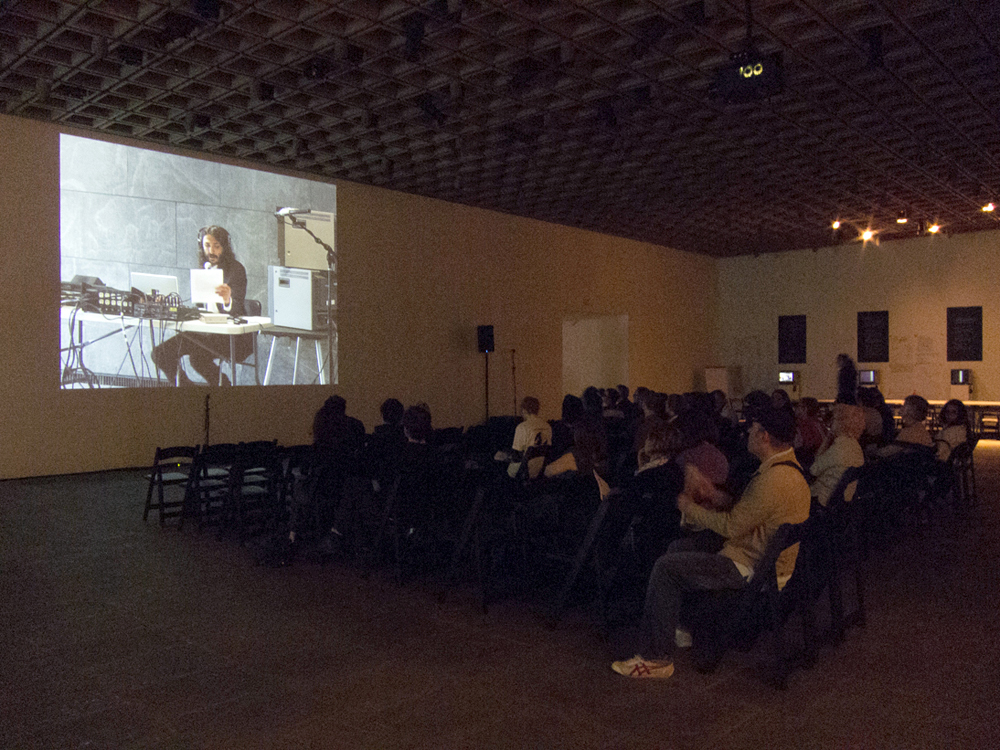
▴ Credit: Bryony McIntyre
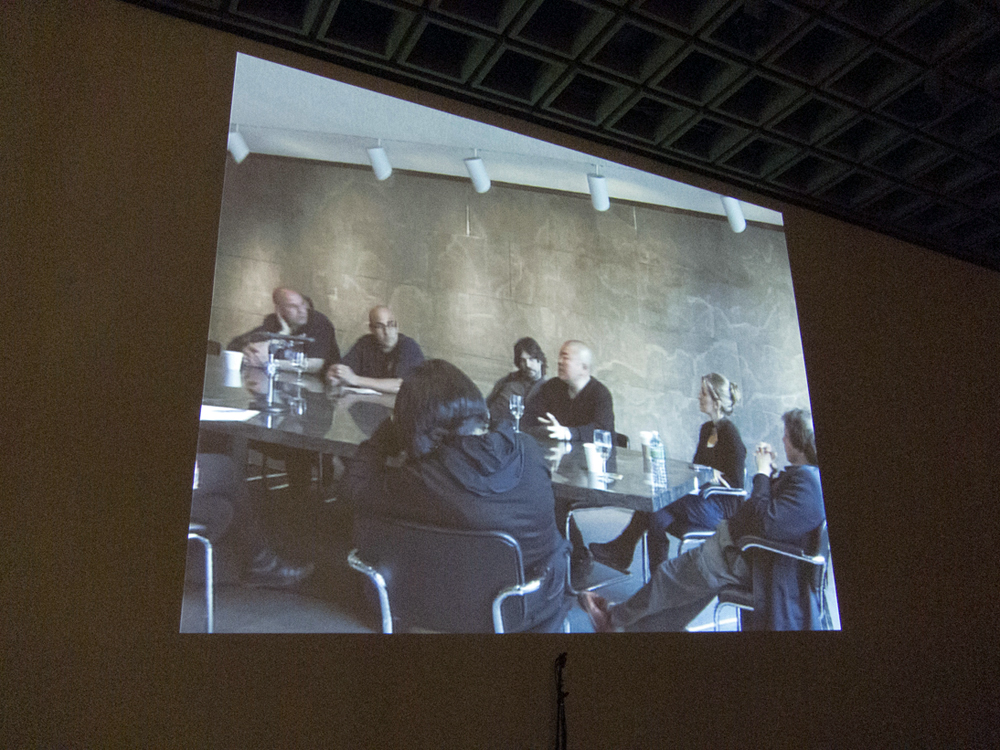
▴ Credit: Bryony McIntyre
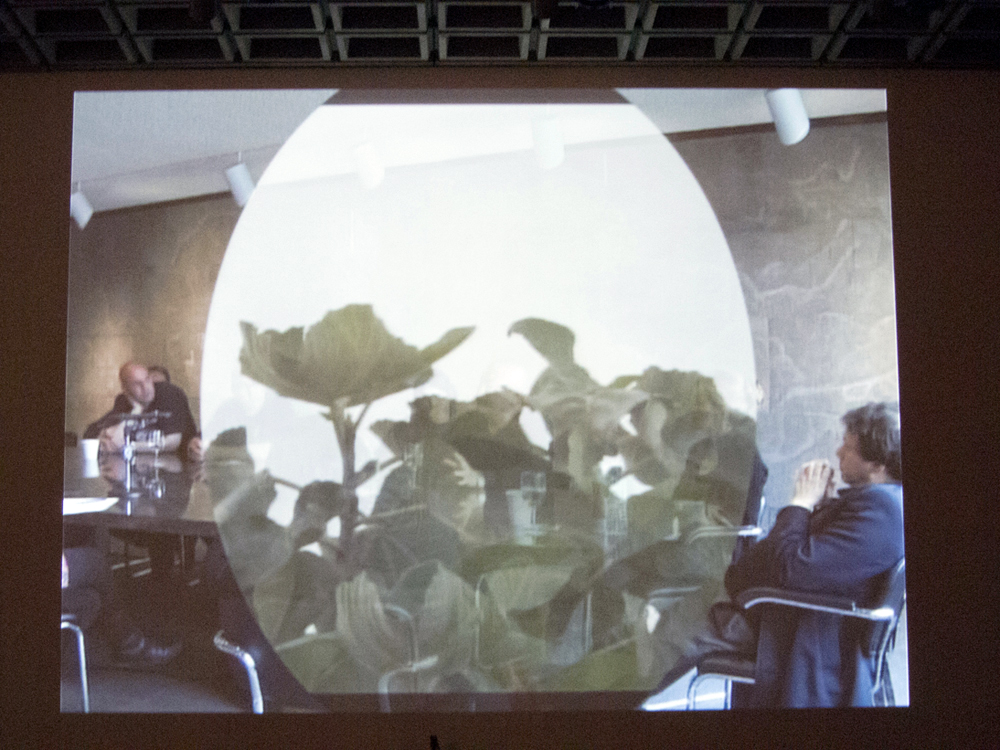
▴ Credit: Bryony McIntyre
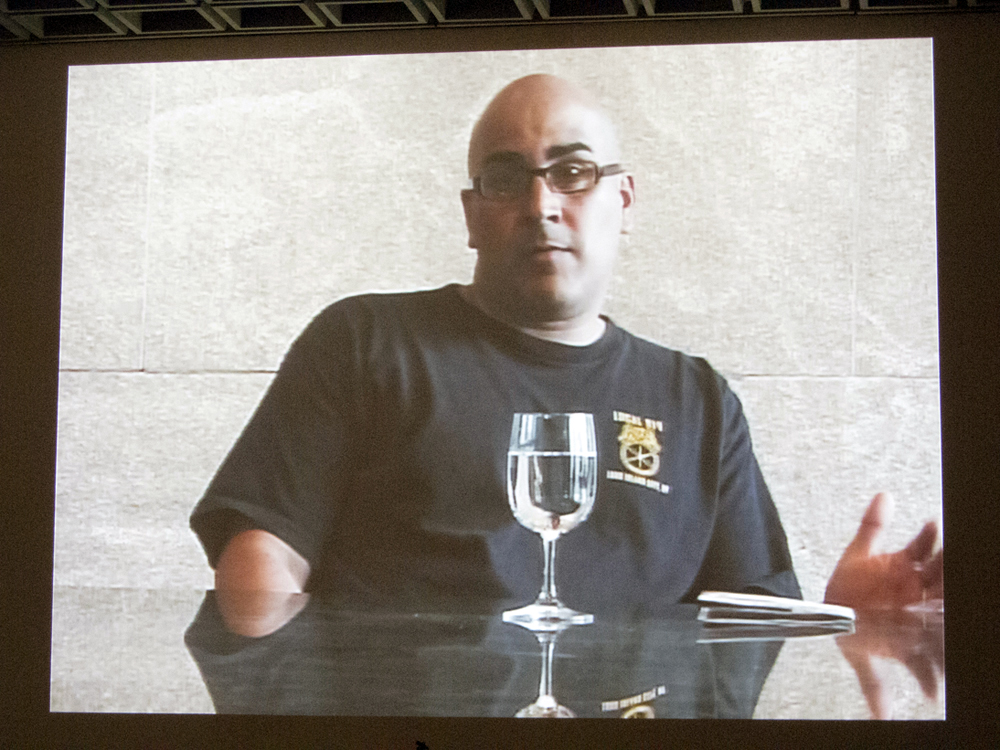
▴ Credit: Bryony McIntyre
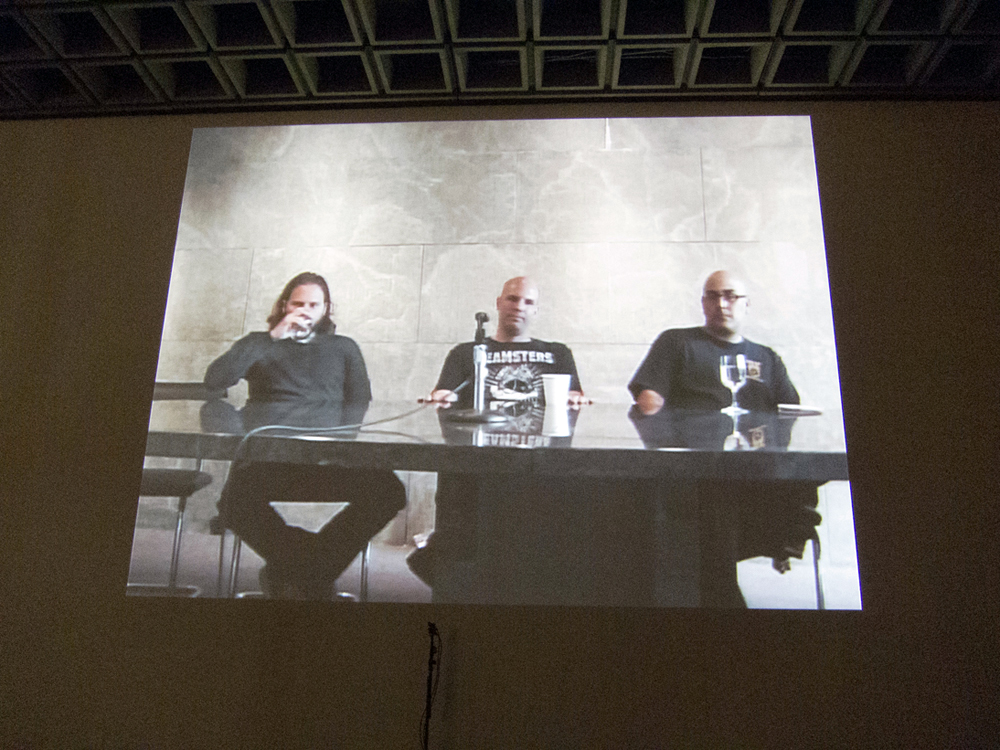
▴ Credit: Bryony McIntyre
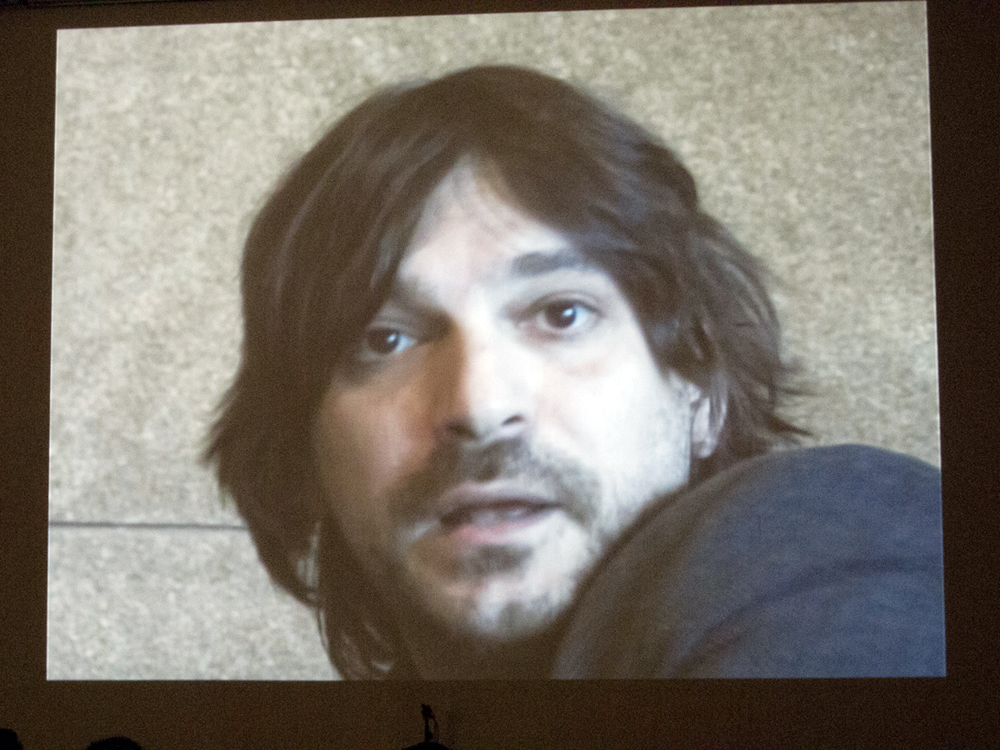
▴ Credit: Bryony McIntyre
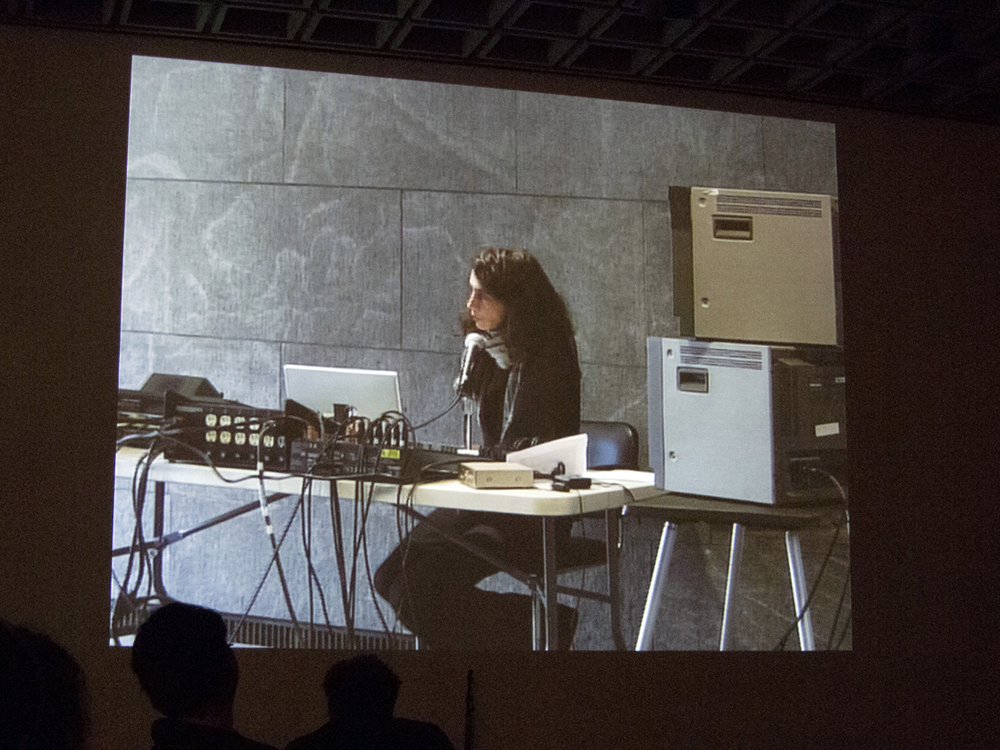
▴ Credit: Bryony McIntyre

▴ Credit: Bryony McIntyre